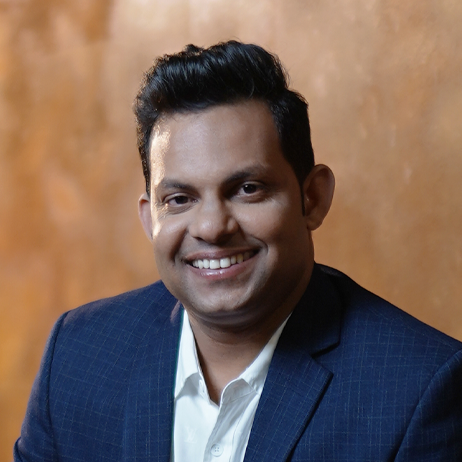
How important is money in an individual’s life? You must have heard people say that money can’t buy happiness or that money isn’t everything. If that’s how it is, why are almost all of our day-to-day activities in one way or another connected to money?
Zig Ziglar, a famous American author, once said, “Money isn’t everything, but it ranks right up there with oxygen.” Whether it’s the meals we eat, the clothes we wear, or the life and work choices we make, money influences nearly every aspect of our lives in subtle but impactful ways.
So, why is money important in life? Let us have a detailed discussion on it. Moreover, this blog will also guide you through the true value of money and how to use and save it. We will also discuss the emotional side of money and how it affects daily lives. So, let’s get into the depths of money.
Beyond materialism, money has an essence and value. Although material possessions are unavoidable, money offers a lot more value, like financial independence, peace of mind, the pursuit of dreams, and quality of life. Let us explore them in this section.
Rather than a goal, money needs to be a tool that guides you through your day-to-day activities. As money has the power to influence the mental peace and well-being of individuals, it’s important that you know how to handle it properly.
Instead of making money and using it to satisfy greed, effective utilisation and saving of money offer more financial freedom and mental peace. With proper savings to meet unexpected expenses and emergencies comes financial security, offering an improved quality of life.
“Money is better than poverty, if only for financial reasons.” – Woody Allen, American filmmaker and actor.
As mentioned earlier, money plays a vital role in meeting our basic needs. Whether it be food, shelter, healthcare access, or basic education, money is important in all these cases. Without sufficient money, even the most basic needs feel like a burden. So, money ensures the basic needs of individuals.
The same is the case with emergencies. Life being so unpredictable, people can encounter emergencies like health issues, job loss, or a family emergency, which can put them in a crisis. However, having money can significantly ease the burden of such situations. So, money not only buys things but also offers emotional stability and peace.
In the previous section, we talked about the basic needs that money fulfils. But is life only about basic needs? Money is not only for basic needs and survival, but it is also for growth and personal development.
Once the basic needs are met, you can use your money in various investments like equity funds, FDs, or other deposits. It can also be used to sign up for a course, get assistance from a coach, buy books, travel, or go for therapy. These are investments that help improve productivity, enhance happiness, and support long-term well-being.
As Henry David Thoreau, a famous American essayist, poet, and philosopher, said, “Wealth is the ability to fully experience life.” That couldn’t be more accurate, right? Although we talk about financial freedom, money also offers more. With sufficient savings and wealth, you will have the power to decide how to live your life.
You can take a break from your career, spend more time with family, go on a trip, or relocate to a new place without panicking over your next payday. Moreover, you will gain the ability to support friends and family with reduced financial stress. So, isn’t it one of the greatest positives of money to gain control over time and life?
Money helps you engage in philanthropic activities and donate to charitable and good causes. These donations help support communities and make meaningful changes in society. So, with these activities, money transcends far beyond materialism.
Money serves as the driving force that fuels our chase for dreams and passions. Although it’s often said that money is not everything, it does help gain access to resources that help you secure your dream job, take a trip to your favourite destination, or begin a business of your choice.
However, even though money opens doors to your dreams, you also need to seize the right opportunity and have sheer determination to convert those dreams into reality.
Financial stability is very essential, isn’t it? Is it just about keeping your bills and payments? No, with financial stability, you experience changes in how you perceive life, shifting from survival to growth. Let’s have a detailed discussion on it.
Once you start receiving a consistent income or your finances are more stable, you will be able to make stress-free decisions, whether they be related to your career, lifestyle, investments, or entertainment.
With a stable financial status, you will be able to focus on your long-term investments and savings rather than worrying about the immediate expenses and needs.
If you are financially stable, you will be open to more opportunities. Apart from living for your needs, you will be able to take calculated risks to begin a business or convert your passion into your profession.
However, to gain this level of financial stability, you should be aware of financial aspects. So, improving your financial knowledge with expert assistance is essential. You can seek help from platforms like FinQuo Versity to improve your financial knowledge, as they offer educational resources, financial courses, and other sources; they provide help with all aspects of finance, including budgeting, saving, and investing.
As we have discussed so far, money has various practical benefits, such as better opportunities, security, and personal growth. However, it also has an emotional side. Money largely affects the emotional aspect of individuals, for better or for worse.
While financial stability offers a sense of confidence and opportunities to invest in oneself through personal development, some people consider it a symbol of self-esteem. Although this might be good at times. It can also lead to anxiety, shame, and a feeling of failure when encountering a financial struggle.
While money opens doors to opportunity, unequal access to financial resources still creates barriers to education, career growth, and upward mobility, contributing to broader inequality of opportunity.
Furthermore, money can also be a reason for disputes and disparities in a family, especially when the concepts of saving, spending, and investing are different among partners. So, it is not only about learning how to earn, spend, save, and invest money. It is also about learning how to deal with the emotional aspect of it.
We have already discussed the importance of money in our day-to-day lives. So, it is clear that money does have a role in the happy life of an individual. However, is there a limit to the money we need?
Although money brings happiness, it does not mean that money is the presiding factor in making someone’s life happy. A sufficient amount of wealth that helps to meet the needs and offer financial stability is important for every individual. It is only then that people will be able to seize opportunities and lead their desired life without worrying about daily expenses and needs.
However, even though more wealth offers more luxurious lifestyle choices, it does not guarantee a happy life for everyone.
A survey was conducted by Ipsos back in 2019 on whether more money brings happiness to people. While 45% of participants shared that more money gives them the greatest happiness, 13% of respondents were against this statement. So, this survey reveals that more money is sometimes too much money, at least for some of us.
Therefore, more than an abundance of wealth, humanitarian values, healthy living conditions, mental well-being, a loving family, an independent life, and more are valued by many.
So far, we have discussed various aspects and the importance of money in life. Given everything we’ve explored, would you say that money is the most important thing in life? Yes, money does have various benefits. It supports personal growth, offers freedom and choices, helps to pursue dreams and ambitions, and aids philanthropic activities.
However, to enjoy these benefits, it is important to have an understanding of one’s income, plan expenses accordingly, maintain proper budgeting plans, and avoid unnecessary debts. Is that all? No. Along with proper money management, people should also be able to deal with the emotional aspects of money to better enjoy its benefits.
The famous Irish author and poet, Oscar Wilde, once quipped, “When I was young, I thought that money was the most important thing in life; now that I am old, I know that it is.” So, remember, the role of money in our lives is huge, but the ultimate aim is to understand the true essence of money and use it as a tool that helps improve freedom, quality of living, and mental peace.
Uma Nair is a professional content writer with over 3 years of experience and a strong foundation in crafting engaging and informative content across diverse domains. Over the years, she has dealt with various niches, and her growing interest in finance has led her to explore the world of financial writing. As an English Language and Literature postgraduate, her educational background supports her ability to convey complex topics in easy and accessible content. In her free time, she stays updated on industry trends to continually enhance the value of her content.

Reviewed by
Ibnujala is a seasoned financial expert of Indian and Middle Eastern markets with an experience of over 15 years. His deep interest in neuroscience fuels his research in seamlessly blending finance and science. With a bachelor’s degree in law from India and an MBA from the UK, his diverse academic background makes him an expert in financial management and mentorship. In addition to being a seasoned investor and serial entrepreneur, he currently serves as the CEO of Finquo Versity.
Disclaimer: The information provided in this blog is for educational and informational purposes only and should not be considered as financial or investment advice. Stock market investments are subject to market risks, and past performance is not indicative of future results. Readers are encouraged to do their own research and consult with a licensed financial advisor before making any investment decisions. The author and publisher are not liable for any financial losses or damages incurred from following the information provided in this blog.

Uma Nair
